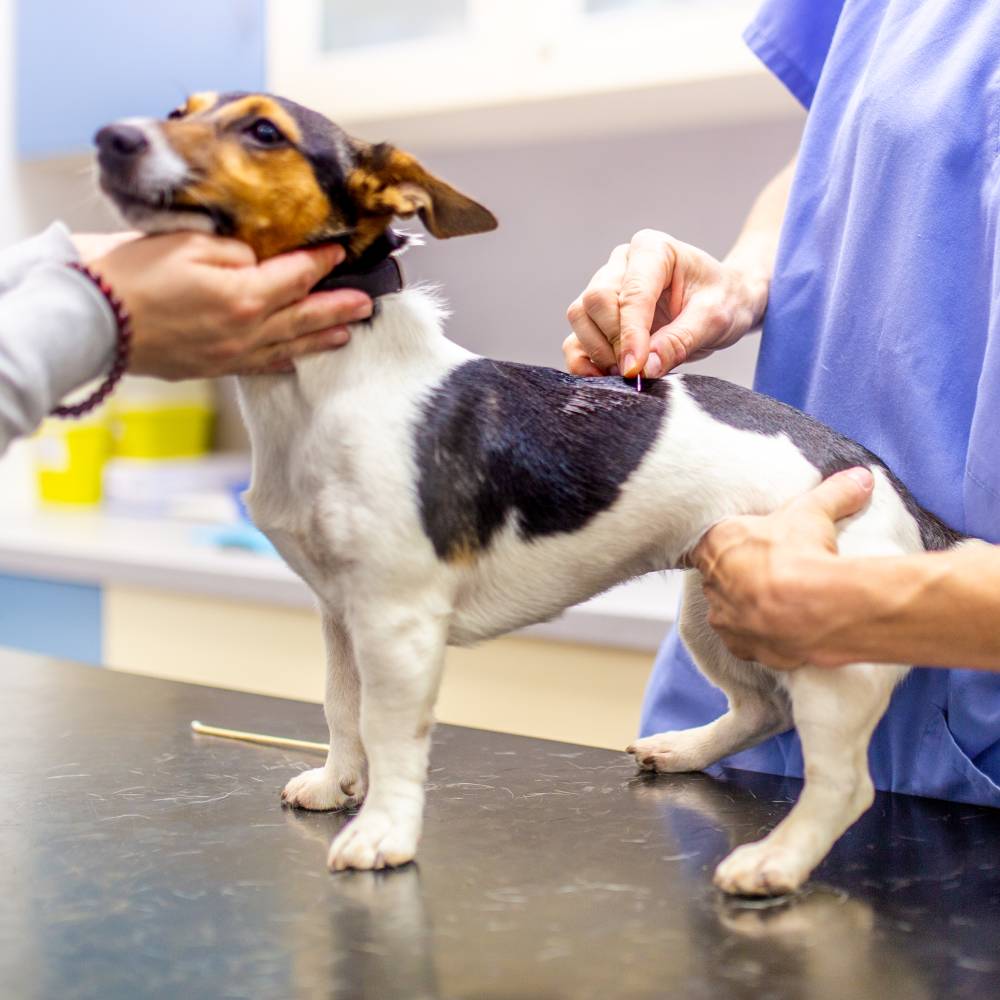
Basic urine test
This is the first screening test we perform if your dog or cat drinks excessively and urinates, suffers from painful urination or incontinence, if you have seen blood in their urine, or if you think they urinate often in small amounts.
- macrocospic assessment – infections, low concentrating ability of kidneys, etc. can be deduced from color, turbidity or odor
- urine specific gravity – determined using a refractometer, this tells us whether there is a normal concentration of urine in the kidneys
- examination with diagnostic strips – this allows us to determine pH and the content of protein, sugar, blood and bilirubin in urine
- urinary sediment – collected urine is centrifuged and the sediment is poured onto a slide and examined under a microscope. In the sediment we distinguish cells, cylinders, crystals, epithelia, etc. This is a very important method in terms of next steps in the diagnostics
- determining protein to creatinine ratio
- urine cultivation – this is performed after sterile collection by cystocentesis, and it is used to diagnose infectious inflammation of the lower urinary tract and kidneys
Hematological tests
The complete blood count test is very important in the diagnosis of infectious, autoimmune, cancerous, internal diseases. It is performed preoperatively and is used to monitor the effectiveness of treatment.
We have a Celtac hematology analyzer that provides results within 30 seconds.
Biochemical test
This allows us to assess the function of individual organ systems, and it also allows us to look into the body for non-specific symptoms of a disease and direct us towards further examination or treatment. Its value is irreplaceable in monitoring the effects of certain drugs on the body and in preoperative examination of middle-aged and elderly patients in terms of the choice of safe anesthesia.
We determine basic biochemistry in the Spotchem analyzer.
Ions and digestive enzyme tests, hormone tests and special functional tests are sent to external laboratories, most often to Laboklin (Germany).
We use a glucometer to regularly monitor blood glucose levels in diabetic patients.

Bacteriological cultivation
In today’s world, overuse of antibiotics causes the occurrence of increasingly resistant bacteria, which is why we often perform microbiological skin and urine tests, etc. We don’t prescribe antibiotics just like that; we try to use them wisely and after confirmation of infection by laboratories (Laboklin, Germany).
Serological test
Cats
We perform blood tests for FeLV (feline leukemia), FIV (feline immunodeficiency) and heartworm. This is a combined snap test that tells us whether the cat has encountered any of the above infections within 10 minutes. The test must always be performed before vaccination against FeLV or in the event of diseases with non-specific manifestations, e.g. fever, lack of appetite, wasting, etc.
Dogs
We also have a special test for our dog patients called the 4Dx test, which tests your dog for Lyme disease, anaplasmosis, and other tick-borne diseases. If your pet had a tick and you’re worried, have him tested. In 10 minutes you will have an answer.
Cytology
This is a laboratory method in which we microscopically examine cells taken from a pathological process in an animal’s body. We take touch imprints from surface deposits (e.g. inflamed areas on the skin, swabs from the ears, nasal cavities, vagina), aspirates from neoplasms on the skin and under the skin (tumors) and from organs (liver, lymph nodes). With this method we can also assess imprint preparations from already removed tumors or bodily fluids (synovial fluid, cerebrospinal fluid).
Dermatology
Skin scraping, imprint preparation, trichoscopy and other methods are described in the chapter on dermatology.

